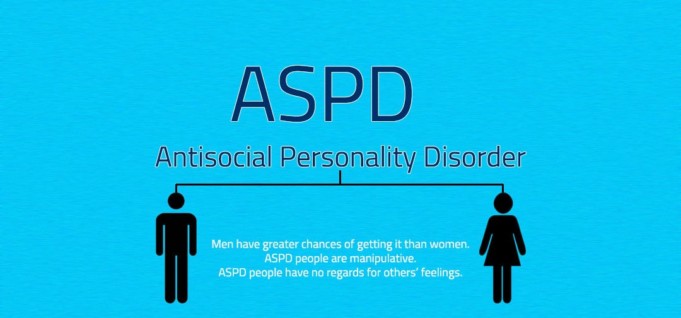There is a uniqueness to everybody’s personality. In some instances, an individual’s way of thinking drives towards destruction – not just to other people, but to themselves.
People with ASPD, fully known as antisocial personality disorder, have a mental health condition that creates patterns of violence and manipulation of others around them. This disorder floods their personality.
Antisocial personality disorder commonly begins during childhood or even in early adolescence and can continue into adulthood. People with antisocial personality disorder manifest a long-term pattern of the following:
- Exploiting and manipulating other people
- Violation of other people’s rights
- Disregarding the law
People with antisocial personality disorder typically have no fear of breaking the law. They can put others at risk and lie and not feel any remorse. Research has shown that the condition is more common in men than women.
Causes
Although environmental and genetic factors may play critical roles, the cause of antisocial personality disorder is yet unknown. The chances of developing the disorder are higher if you are a male.
Other factors may also cause the disorder to develop, including the following;
- If you were abused as a child
- If any or both of your parents were alcoholics
- If any or both of your parents had ASPD
Symptoms
Children with antisocial personality disorder tend to be cruel towards people and animals. They may also resort to vandalism and arson. An adult may manifest symptoms that may include;
- Being arrogant
- Being easily angered
- Manipulative
- Stealing
- Lying
- Being coy about getting what they want
- Aggression
- Showing no sign of remorse
- Getting into fights
Individuals with antisocial personality disorder higher risk of substance abuse. Studies have linked alcohol abuse to elevated aggression in people with an antisocial personality disorder.
Diagnosing ASPD
A diagnosis of antisocial personality disorder can’t be made in people who are below the age of 18. Obvious symptoms that are similar to ASPD in these people can be diagnosed as a conduct disorder.
Individuals who are older than 18 can be diagnosed with antisocial personality disorder only if they’ve had a history of conduct disorder when they were younger.
A mental health therapist can analyze these individuals and question them about their past and present behaviors. This would make it easier to detect any symptoms that could help to accurately diagnose an antisocial personality disorder.
Specific criteria must be met for proper diagnosis of ASPD, and they include;
- Observation or documentation of at least three symptoms of antisocial personality disorder before the age of 15
- Diagnosis of conduct disorder in an individual before the age of 15
- Observation or documentation of symptoms of antisocial personality disorder that doesn’t manifest during manic or schizophrenic episodes
Treatment
Treatment of antisocial personality disorder can be very challenging. Generally, your healthcare provider could try a combination of medication and psychotherapy. It can be challenging to fully assess how effective available treatments are in combating symptoms of ASPD.
Medications
There are currently no approved medications for the treatment of antisocial personality disorder. Although, prescriptions may include;
- Antidepressants
- Anti-anxiety medications
- Mood stabilizers
- Anti-psychotic medications
Your doctor may also advise you to stay in a mental health facility where intense treatment can be received.
Psychotherapy
Depending on the situation, your psychologist may recommend various types of psychotherapy. Cognitive-behavioral therapy can be used to reveal a person’s behavior and negative thoughts. It can also help to show ways of replacing these negative behaviors and thoughts with positive ones.
Psychodynamic psychotherapy can be used to maximize awareness of negative, unconscious behaviors and thoughts. This method can be used to help the person with the condition change them.
Seeking helps for Antisocial personality disorder
Watching someone, you love and care for to exhibit negative and destructive behaviors can be emotionally tasking. It’s worse when these behaviors affect you directly. Persuading the person to get help is even more challenging.
This is due to the fact that many people with the condition don’t believe there’s anything wrong with what they are doing.
A person with ASPD can’t be forced to get help. Being there for the person can be a step in the right direction. Having a counselor can also be helpful in learning ways to cope with the stress of having to deal with a loved one (family or friends) with the condition.
You also want to have a contact emergency on your phone in case some situations are beyond your control.
Outlook
Individuals with antisocial personality disorder have an increased chance of abusing drugs, going to jail, and committing suicide. Most times, they only get help when they get into trouble, and a court forces them to get help.
The symptoms of this ASPD could get worse during the late teenage years into their early twenties. After getting treatment, symptoms can improve as they get older. This can promote ethical behavior as they near their 30’s into their 40’s.
Do you know anyone with ASPD? Is the person a family or a friend? What characters did you notice in this person? What form of help did they get? Share with us in the comments below.













